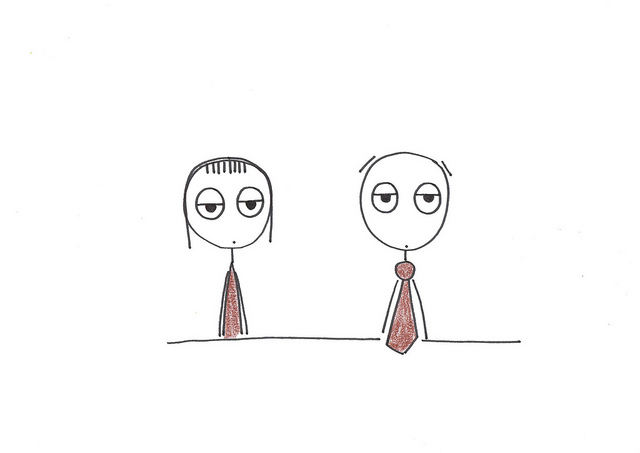My lifelong habit finally caught up with me.
For as long as I can remember, I’ve kept a mental tally of who paid for a shared meal last, whether my best friend wrote me back after I passed her a note in biology class and if that friend I kept giving rides to would return the favor.
I’m a scorekeeper.
It’s not a role I’m proud of. This is never something I intended to do—it’s just how I’ve always been.
But it was in my marriage, after having kids, that my scorekeeping became dangerous.
As a mom, the playing field was uneven from conception—I was the one cradling the toilet bowl due to all-day “morning sickness.” I was the one who bled and tore during childbirth. I was the one constantly breastfeeding, the all-night nurse.
If I was keeping score—and you can bet I was—I was way ahead.
Though our family has graduated from the steepest trenches of infancy and toddlerhood, our lives are, like most, quite full. I was secretly calculating where I was outpacing my husband, then using it as a weapon against him. I kept quiet until I needed something. Then, sighing and frustrated, I’d whine, “I’ve been up with the kids since six. You have golf league tonight so I’m on my own at bedtime. Can I please get to a yoga class sometime soon?”
“Why don’t you just tell me you want to go to yoga? Why do you have to make a case for it?” my husband would ask. He didn’t appreciate that I’d been mentally tabulating our workloads. Could I blame him? We’re supposed to be a partnership, and scorekeeping is inherently divisive.
Besides the fact that my scorekeeping was unpleasant for my husband, it wasn’t really working for me, either.
But it wasn’t until I read Donald Miller’s powerful book, Scary Close: Dropping the Act and Finding True Intimacy, that I began to view scorekeeping as something truly damaging. In a chapter on The Five Kinds of Manipulators, The Scorekeeper was the first category. “A scorekeeper makes life feel like a contest, only there’s no way to win,” Miller writes.
A hot blush spread through my body.
“In true intimate relationships, no one keeps score,” Miller continues.
Without meaning to, I’d been manipulating my husband. As Miller puts it, people who keep score grasp onto what they’re owed.
Then, when they need something, they let people know they’re owed.
I’d been using scorekeeping as a manipulation for most of my life. Now it was time to shrug it off.
But how?
The first step to changing my behavior, as with any unhelpful habit, was to realize the depth of my scorekeeping problem. Once I became aware that I was doing it, I began to see how entrenched it was in my thinking: I’ve been with the kids all week. He owes me one, I’d catch myself thinking. Whoops, there I go again.
Next, I needed to speak up. If there was real inequality occurring, instead of internalizing it, I needed to talk with my husband and create a plan to level the playing field.
As an introvert, I need alone time to recharge. Instead of presenting a federal case for how much I do, I’m learning to go more directly to the need that is fueling my scorekeeping. I’m burnt out and I need some alone time.
It’s pretty simple—it really has nothing to do with who is doing “more.”
If I need time to myself, I need to say so.
Relationships shouldn’t be treated like games or competitions. Slowly but steadily, I’m burning my score cards.
More goodness from Lynn:
How to Stop Apologizing All Over Yourself.
Relephant:
If Your Relationship Is Failing, Here’s Why. ~ Dr. Margaret Paul
Bonus:
Author: Lynn Shattuck
Editor: Renée Picard
Image: The Daily English Show at Flickr












Read 5 comments and reply